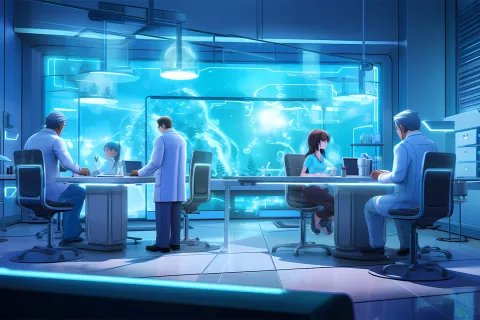
Social media and other communication technologies are excellent instruments for bringing attention to public health issues and solutions. In addition, these contemporary tools are employed to disseminate misinformation and conspiracies regarding various subjects, such as vaccinations, genetically engineered organisms, climate change, and, most recently, the COVID-19 pandemic. Recent studies indicate that fake news may disseminate more quickly and widely than factual information.
Choosing which health information is the most trustworthy is the biggest challenge for a non-expert reader, regardless of many online information sources. To grab the audience's attention, science journalists who lack a scientific background frequently sensationalize scientific breakthroughs, which has the potential to spread false information. Contrarily, the majority of scientific material produced by researchers is complex and overly saturated with technical terms. It makes it less understandable to the non-expert. To make a scientific article or blog more readable, a writer should consider the following points.
Check on Five Ws
Your objective as a scientific writer is to make science understandable to your target audience. When creating the outline for your article or science blog, consider the following questions:
- Who: Is concerned? Will benefit or be harmed? Is the audience?
- What: Exactly is your topic? Is the expected outcome you are aiming for? Is the goal to educate, influence, or explain? Are the project's objectives? Are the advantages and disadvantages of the research?
- When: Does this happen? How does the timing affect your topic?
- Where: How significant is the location? If so, in what situation?
- Why: Justification for authoring this article. Is the subject significant? Does the reader care about it?
Do not assume that the reader will comprehend you. Reduce the number of statements you make, develop them with facts and examples to help the reader understand, and use as little scientific jargon as possible.
Simple is Best
There are 1.8 billion websites, 5.6 billion Google searches, and over 500 million tweets sent on a day-to-day basis. More than 55% of readers stay on a piece of internet information for fifteen seconds or less. Web readers have limited attention spans and are prone to being bogged down in the intricacies. Because the ordinary reader won't remember every detail, make your writing scannable. Create a solid foundation that aids the reader in understanding the material and remembering an important piece of information.
Your goal as a scientific writer should be to communicate the topic clearly and consistently to a more scientific audience rather than to wow them with your writing skills. Papers written simply will be stronger, clearer, more coherent, and easier to read. The reader is more engaged by writing that has a conversational tone, and the audience develops trust by being presented with reliable scientific data. Now that the majority of scientific literature is available online, the advantages of writing simply include higher credibility, better search engine optimization (SEO), and easier reading on mobile devices. The latter is crucial because content displayed on a mobile device makes it harder to understand what you're reading.
Taking a Stand – or Not
A scientific writer's primary responsibility is to communicate science, not to advocate for it. But it's important to promote research and win the public's support, and good scientific communication may also involve science advocacy. While they are putting up the information, the scientific writer must keep in mind their target audience, which is global, and write the article or blog addressing the global audience. He/she must not take any stand for a particular group of people, as it might hurt the sentiments of the rest of the audience reading the piece. If the scientific writer takes a stand for a particular section of the audience, there will be some type of criticism, mostly negative. The role of the scientific expert is always open to public debate and criticism. Therefore, the writer must mindfully decide on where it is important to take a stand and where it is not.
Social media is changing how people communicate with each other. At the same time, it is a powerful tool that can be leveraged to inform and educate the public on health research, policy, and place medical professionals and healthcare systems in a better position to respond to public health emergencies.
To eliminate the challenges of getting hold of a scientific writing expert, it is advisable to associate with a Regulatory partner with skilled and experienced scientific writing professionals. Freyr helps you right from journal selection to the finalization of the manuscripts. To get more detailed information about how Freyr can help you, please reach out to us.









